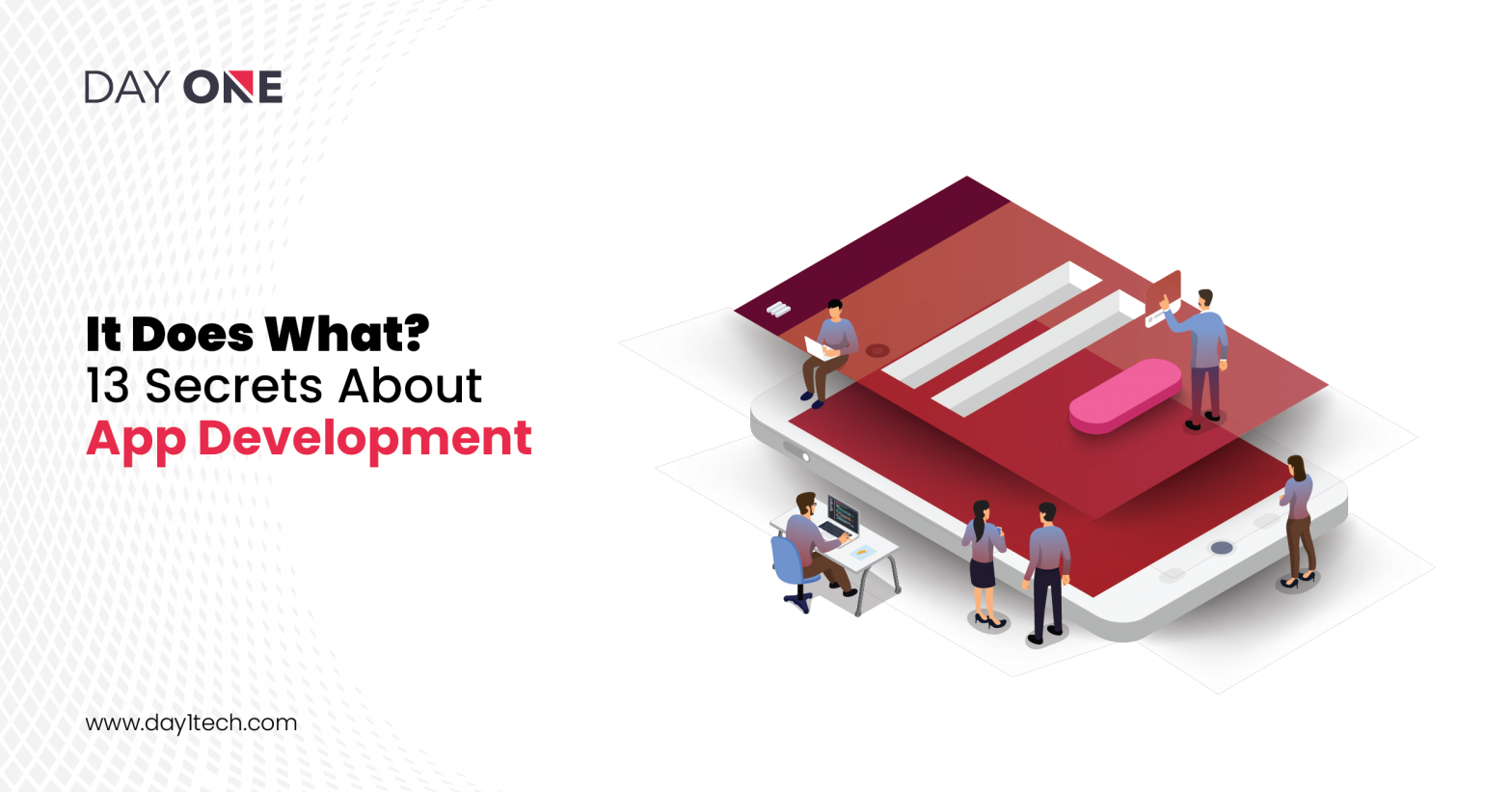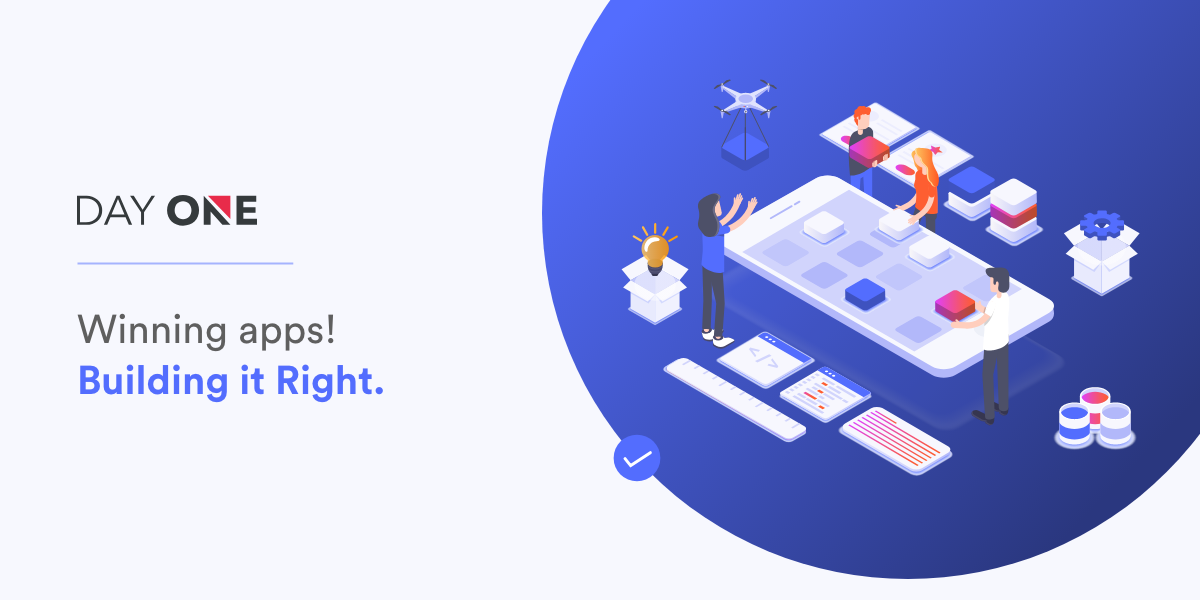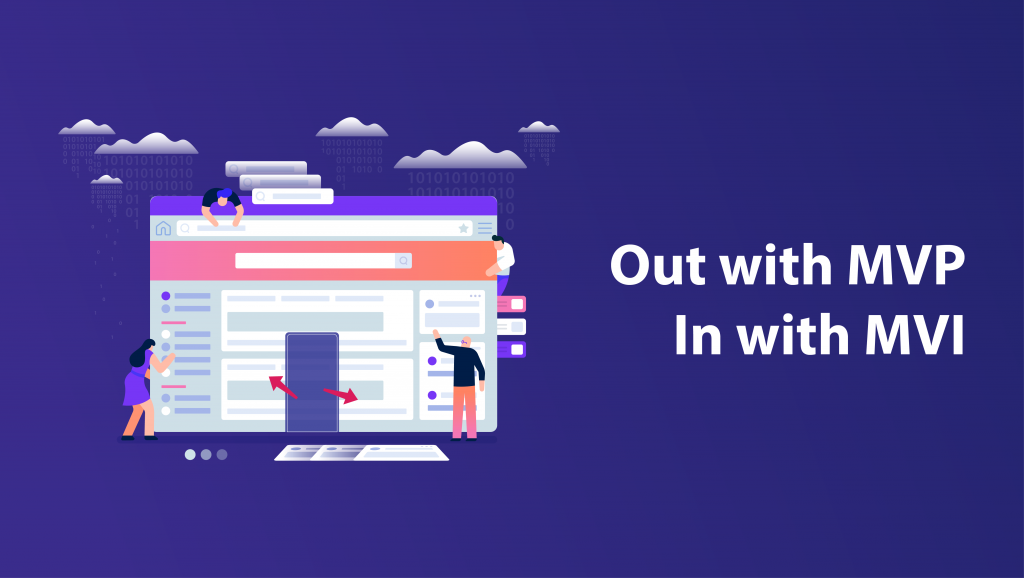It Does What? 13 Secrets about App Development
admin
App Development
July 15, 2021
9 min read

What is App Development?
App development can be explained as a process where an application is designed for smartphones, tablets, or computers. Thus, the category of apps may vary from native apps, hybrid apps, or HTML5 apps. In addition, an app generally needs a network to work.
The developers consider a lot of factors like screen size, target segment, configurations, and system specifications before they create an app. Each factor plays a crucial role in providing the user with a simple, crisp, and easy interface design.
The smartphone market has grown leaps and bounds over time. It is a smart move for businesses to capitalize on this front and create AI Powered App Development and work on Mobile App Development to connect with their clients. However, businesses often face a hard time connecting with the target audience. Mobile apps are a medium that provides exposure through various platforms simultaneously. Businesses can use apps to send promotional offers via notification. It provokes the customers to log in to the app to redeem these new offers and purchase them. These apps provide a well-researched avenue for businesses to improve on the customer base and increase their revenues manifold. Even though mobile apps are cohesive to the growth of businesses, a majority of apps end up lacking client’s attention. We usually see that a few apps have very few downloads while others reach more than a million downloads.
There undergoes a lot of groundwork in developing an android app or iOS based app. The planning right from conception to completion needs to be flawless. Hence, before the development phase of an app, it is very important to chalk out clear plans relating to key app features, defining the target audience, and preparing a well-planned marketing plan to reach out to the users. With every decision that needs to be taken in the process, there will be several points that need to be considered. It is only then that the final app will be a grand success. A successful app will be focused on performing the defined task effectively so that the ease of use gets full marks. The user experience needs to be effortless. So, let us unlock the secrets to build a successful app. Listed below are 13 secrets that differentiate successful apps from unsuccessful ones.
13 Secrets to successful App development:
The app developed for business owners must get a good response from the target segment for business owners. Here are 13 secrets to building a successful app:
1. Background research is important
A successful app has its base as solid background research. The first and foremost step is to identify the underlying problem that you would like to address. Also, your app may not be unique, but it needs to be different from the other apps available in the market. Being unique gives you an added advantage, and you can stand out in the vast competitive market of mobile apps. Research plays a key role in making the app successful. App development is a never-ending process where the developer needs to keep researching and implementing the ideas in the app. The apps need to be consistently improved upon so that it always proves worthy to use. It would help if you also analyzed your competitors’ apps. You need to have a fair idea of what they cater to and the drawbacks of their apps. Competitive analysis will help you discover aspects to include in your app to make it better than theirs.
2. User Experience
A great User Experience (UX) of your app is crucial for its success. A smooth UX can lead to a reduction in the product development cycle to almost half. UX is a crucial part of app development as users don’t have the time and patience to understand complicated processes. You must have an analytics team to guide you on how the users are engaging with your app. They must consider the customer feedback constructively while reviewing the app.
3. Innovative Design
App design is the key to a successful app. The users stick to clear, crisp designs that are visually appealing and easy to use. The UI UX design must be clear in mind so that you can communicate it to the app designer. You must have clarity on what is appealing to the audience. You must take into consideration the current color schemes, fonts, and logos to provide consistency. However, if you start afresh, you can adorn your creative hats and experiment with the app design. Sound research in the background is the key to success. For example, if your app is aimed at kids, bright colors and easy-going language would serve the purpose. If your app is meant for corporates, maybe dark colors and formal language will work. Thus it is important to map the design keeping in mind the target customers.
4. App must be Shareable and help stay Connected
The world is shrinking and becoming a close-knit society. The users want all the information in real-time. The apps have helped to connect people all across the globe and have made data shareable. Thus to make your app successful, you must share it on social platforms like Facebook, Linked In, Twitter, SnapChat, and Instagram. It is the quickest, easiest, and cheapest way to reach out to users who will also influence their friends to use the app. The app must be available for both iOS and Android versions. The Android users have almost become equal to the iOS users across the globe.
5. Offline functionalities:
Generally, a mobile app requires a Wi-Fi connection for all its features to work. Your mobile app can be unique if it could allow users to access some key features without any internet connection. These offline capabilities of your mobile app can help you gain loyal customers as they can connect to your brand from anywhere, anytime. This enhances the user experience manifold. You must instruct the app development team to develop features in the app that can work in offline mode.
6. Choose between platforms:
The choice of a platform for is a key question that needs to be answered before you start building the app. It has to be decided upon before you instruct the development team to start building the application. The three main platforms that are used include iOS, Android, and Windows. The target audience is the one that will define whether you need to build the app for an android interface or an iOS interface. You can use Google Analytics to get an answer to the dreaded question. The app development company needs to be sure of the platform that your target segment used more often. You can give a green flag once you have an answer to this question. Whether Android App Development or iOS app development, make sure that the app works flawlessly on the desired platform.
7. App Development Team:
Closing down on the right app development team is very crucial for your app development strategy. You can hire a well-qualified team to develop the app or take consultation from an app development agency. It depends on the kind of strategy you wish to adopt for your app. If you wish to go for in-house development, then you can hire app developers from the market. If you choose to get the app developed externally, you may opt for app development teams offshore. Planning every stage of development is vital.
If the app is not ready within the stipulated time, it may affect the launch of the app. Generally, apps fail if the launch is ill-timed. Therefore, your planning must be foolproof, starting from the app development to its launch and continuously improving by getting user feedback to implement in the newer versions of the app. A lot of planning tools are used in app development these days. The most common ones include the Minimum Viable Product (MVP), Waterfall Approach, Agile Approach, and the Low-code development.
8. Choose the right Development agency
This forms the base when you decide to build an app. If you do not opt for an in-house app developer team, finding the appropriate app development agency that can take up the important job becomes crucial. The key pointers that need to be considered while finalizing an app development agency are:
- The experience they have in this particular industry
- Have they done any similar projects
- Do they have proper technological support
- Will they plan according to your thought process
- Will they take feedback constructively or not
- They must be using high-quality software
- The delivery must be within the stipulated time
- Pricing must also be a consideration
- Past client experiences and reviews can help you conclude.
9. Continuous action
This is one of the last stages of application development. Bringing resources into effective action can be tedious and time-consuming. It is an extended part of constant integration. It is as simple as writing codes for any new version you wish to bring into action for your app and then writing a common code that you can use for all the upcoming new features. But all this must not deviate from the basic, simpler version of the app. It must not complicate the entire process. Continuous action aims to develop and deploy such a reusable code for your app development.
10. Unit Testing
If you want the app to be successful, it will involve a series of unit testing followed by regular releases. It would help to constantly develop new features, consider the needs of the app users, and get a clear picture of what is working and what is not in the app. You cannot launch the app if you have not tested it. You must hire professionals to test the app. The Alpha test and Beta test are usually carried out for testing the app.
An Alpha Test is done by a group of Android app developers who would present you with a bug report. They will also provide some code optimization tricks. The next level consists of Beta testing, where a larger audience is involved in testing the app. The beta lets the user try the app using the link, E-mail address, or Google groups. Once your app is free of all bugs and errors, it is ready to launch. You can also use an Emulator to test android applications if you do not want to use any physical device.
11. Testing the app after release
Once you are through with the initial release, you must keep testing the app so that it is easy to discover the problem areas that might not have come across in the development phase. Once you know about these issues, you can resolve the same quickly to give a hassle-free experience to the users. While the previous step of testing your app before release is vital, it is also crucial to keep testing it after the release. It is always better to keep improving the user experience through constant testing. Testing your app for all the defined parameters is crucial, but testing it on various physical devices and networks can be a troublesome task. The costing would also play a major role while you test your app on different devices. The solution lies in the technique called testing automation. The use of Artificial Intelligence can do it. AI-powered app development will save a lot of money. Data from various physical sources can be stored and analyzed through cloud-based methods, and results can be shared through the computational efficacy of the gadget.
12. Data Access
The application must perform immaculately. You must consider key factors like app speed and usage during the product development stage. If these parameters are not up to the mark, the users will stop using the app. Furthermore, Android empowers the users to gain control over the data, and the app needs to seek permission for data access every time. Thus the android app development will need to keep this feature in mind as the app may not function if the user does not allow access to the data or location.
13. Planning the marketing strategy
After completing the technical part of app development, you need to focus on creating a well-defined marketing plan for your app. The plan must focus on the app pricing, constant addition of features, and marketing plan to introduce the application in the market. There are several similar apps in the market, so there must be a unique plan to market the app to discover your app and use it. You must allocate a good budget to market your app. You can find your target segment on social media. Facebook, Twitter, Snap chat or Instagram are great places to market your app. Finally, you must have a well-defined marketing campaign when you launch the app in the market.
Conclusion:
Application development needs to be kept simple. With the right developers and following these tricks, you can create a useful app that will greatly succeed amongst the users. App development has to go through some important stages. It includes ideation, planning, designing, development of the app, and final release. The work begins with the ideation stage. It is the phase where the app developers will sit with you and ask many questions to clarify the idea.
First, they must get a clear idea of the goals behind launching this app. They must know about the business model in detail so that the app’s design is aligned to the business goals. Next, there has to be clarity about the target audience. It must be clear who will be using your application and the basic idea behind the app usage. Finally, you must be clear about all the business needs and limitations attached in addition to that. For example, you must be clear about the IT usage, your budget and define the timelines beforehand.
In the planning stage, you must finalize a practical idea to align with your goals. Next, the developers will work on the user experience in the design phase. Next, they will try and add in branding and present an interactive prototype of the app. Finally, the actual app is built in the development stage. You will test and review the app at every stage. Once the app is ready, it is released to the app store. All these stages need to follow a collaborative approach so that the result is best suited for the general public.
Explore More Blogs
Testimonials What customers have to talk about us
Finch (previously Trio) – Growth with Investing, with benefits of Checking
Reading Time: < 1 minThe Finch (previously Trio), one of our clients today has reached this level with our expertise and with a great team of developers in Day One, who have made every stone unturned in making this project a big success.
Neel Ganu Founder
USA
Vere360 – VR based Immersive Learning
Reading Time: < 1 minDay One helped Vere360 “fill skill gaps” and build a platform that would cater to their niche and diverse audience while seamlessly integrate the best of #AI and #VR technology.
Ms. Adila Sayyed Co-Founder
Singapore
1TAM – Video Blogging Reimagined
Reading Time: < 1 min‘1TAM’ was only for iOS with gesture-based controls, advanced video compression techniques, and a simple architecture that allowed actions to be completed in 2-3 taps. The real challenge for ‘1TAM’ was to keep it distinct which bought brilliant results with all the strategies and approaches implied for best video compression techniques.
Anwar Nusseibeh Founder
UAE
Fit For Work – The Science of Workplace Ergonomics
Reading Time: < 1 minDay One Technologies came with the expertise that was required and helped in building a platform that is edgy, functional, and smart, delivering engagement and conversions at every step.
Ms. Georgina Hannigan Founder
Singapore
SOS Method Meditation for ‘Busy Minds’
Reading Time: < 1 minDay One Technologies helped in building an innovative mobile app (for #iOS and #Android) that’s easy-to-use, engaging, and data-driven to help users reap the most at every point.






